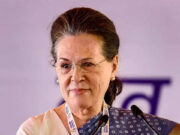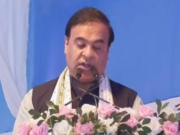Since 2018, the World Health Organisation (WHO) recommends the development and implementation of the NEDL to facilitate the availability of In-Vitro Diagnostics (IVDs) across the various tiers of the healthcare pyramid, facilities with or without a laboratory on site.
India is the first country to release the NEDL, the ICMR said.
“Since considerable time has elapsed following the release of the first NEDL in 2019, ICMR invites suggestions for revision of the existing list i.e. addition or deletion of diagnostic tests, from all the relevant stakeholders,” it said.
The list enumerates the minimum number of tests that should be available at various levels of healthcare facilities, including village level, sub-health centre or health and wellness centres (HWCs), primary health centres (PHC) or HWCs, community health centres (CHC), sub-district hospital (SDH) and district hospital (DH).
The inclusion of diagnostic tests in the NEDL was based on a careful consideration of the disease burden data in different states, alignment with national programmes and adherence to Indian Public Health Standards (IPHS). The manpower, infrastructure and logistical support required at each health facility to carry out the tests were also recommended in line with the IPHS (2012) guidelines, the apex health research body said. In a positive outcome following the development of the NEDL, the list was adopted by the Free Diagnostic Service Initiative (FDSI) of the National Health Mission (NHM) in 2019.
This adoption has ensured that the diagnostic services provided under the FDSI align well with the essential diagnostic tests outlined in the NEDL.
The stakeholders have been asked to consider a list of criteria — essentiality of the test, disease burden and alignment with the IPHS 2022, before proposing any additional tests to the existing list.
Essential diagnostic tests are defined as those “that satisfy the priority healthcare needs of the population and are selected with due regard to disease prevalence and public health relevance, evidence of efficacy and accuracy, and comparative cost-effectiveness”, the ICMR said in the document.
The test should focus on conditions with a high disease burden or having significant public health relevance, where the introduction of a diagnostic test will have a clear impact on disease diagnosis and management.
The proposed test should have documented utility and necessity at the level for which it is suggested and the proposed addition should be in alignment with the availability of equipment, infrastructure and manpower, according to the IPHS 2022. Suggestions for the inclusion of point-of-care tests are encouraged and the diagnostics suggested for addition should have obtained necessary regulatory approvals, the document stated.






































